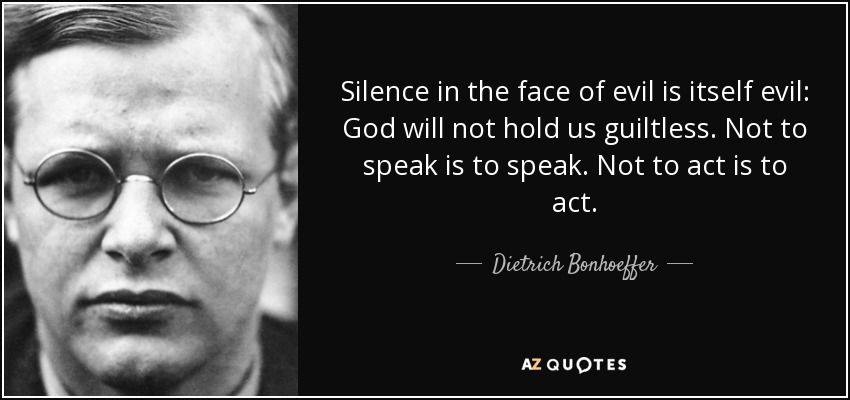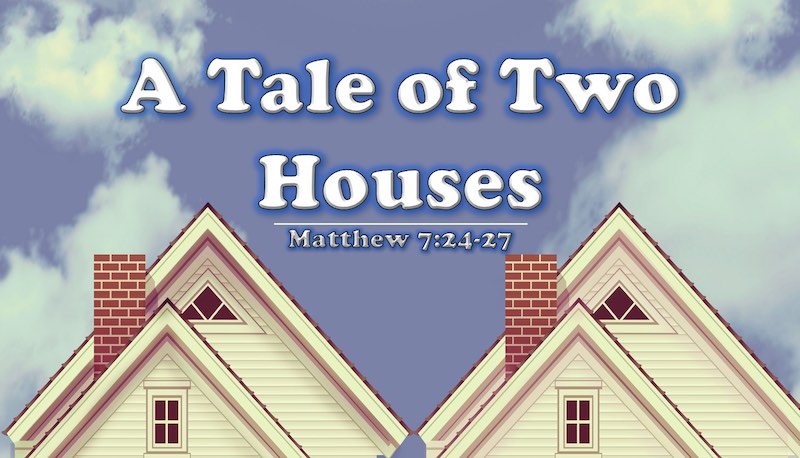Ever since the Garden of Eden, the goal of the evil one has been to distort the Word of God and to deceive mankind. Adam and Eve believed the lie of the enemy and chose to disregard the Word of the LORD. Their disobedience brought sin and death into their lives and into this world. Whenever we choose to disobey God’s revealed truth to us, we follow in the path of Adam and Eve and go down a road that leads to death and separation from God. We see an example of this in this week’s reading from the prophets.
The Sabbath before the yearly celebration of Purim (Thursday, March 21, 2019) is called Shabbat Zachor which means the “Sabbath of Remembrance.” On this Sabbath we always read the command of the LORD to King Saul to utterly destroy the Amalekites, an enemy of Israel:
Now go and strike Amalek and utterly destroy all that he has, and do not spare him; but put to death both man and woman, child and infant, ox and sheep, camel and donkey. – 1 Samuel 15:3
Saul gathered the army of the Israelites in order to fulfill this command but, unfortunately, Saul failed to completely obey.
We read in 1 Samuel 15 that God sent the prophet Samuel to go to Saul in order to rebuke him for not carrying out the Word of the LORD. Even after being confronted, Saul continued to defend himself and maintained his integrity:
Then Saul said to Samuel, “I did obey the voice of the LORD, and went on the mission on which the LORD sent me, and have brought back Agag the king of Amalek, and have utterly destroyed the Amalekites. But the people took some of the spoil, sheep and oxen, the choicest of the things devoted to destruction, to sacrifice to the LORD your God at Gilgal.”
Samuel said, “Has the LORD as much delight in burnt offerings and sacrifices as in obeying the voice of the LORD? Behold, to obey is better than sacrifice, And to heed than the fat of rams. For rebellion is as the sin of divination, and insubordination is as iniquity and idolatry. Because you have rejected the word of the LORD, He has also rejected you from being king.” – 1 Samuel 15:20-23
Saul’s partial obedience was viewed in God’s eyes as total disobedience and this brought about God’s rejection of Saul as being King of Israel.
God’s Word is not a multiple choice question with several different options. God’s Word is truth and we are called to obey it. There is another reminder of this call to complete obedience to God’s Word which is found in the main text of this week’s reading from the Torah.
The Guilt of Silence
This week’s Torah Portion is taken from the first few chapters of the book of Leviticus. The first seven chapters of Leviticus detail how the people of Israel were to present various sacrifices and offerings to the LORD. The text of these chapters also identifies particular sins which demand corresponding sacrifices thereby bringing atonement for sin.
In the midst of these chapters and verses regarding various sins and sacrifices we read a unique verse which speaks of the guilt of the one who chooses not to act:
Now if a person sins after he hears a public adjuration to testify when he is a witness, whether he has seen or otherwise known, if he does not tell it, then he will bear his guilt. – Lev. 5:1
The sin that is described in this verse is one of inaction. It is describing a situation where a person knows something that he needs to share but chooses to remain silent. This silence is viewed as disobedience and therefore it is considered sin.
The verse quoted above is a difficult verse to translate and it doesn’t read easy in the Hebrew. A literal translation of the Hebrew into English reads as follows:
And the soul who sins, and he hears the voice of a curse and he is a witness or sees or knows, if he doesn’t tell then he shall bear his iniquity. – Lev. 5:1
The word for “soul” in this verse is נפש – Nefesh and it is often used in the Bible to refer to a person. Here it is used to represent a living soul: any individual who sins in this manner.
The word for “curse” in the above verse is the Hebrew word אלה – Alah which can mean a curse or an oath. The word אלה – Alah carries with it the meaning of a strong oath which upon acceptance must be carried to completion. If the oath is not fulfilled then it brings a curse.
An example of this word אלה – Alah in the Bible is found in Genesis chapter twenty-four when Abraham sent his servant to find a bride for his son Isaac. In the following verses Abraham’s servant explained the oath to which he accepted:
My master made me swear, saying, ‘You shall not take a wife for my son from the daughters of the Canaanites, in whose land I live; but you shall go to my father’s house and to my relatives, and take a wife for my son.’ I said to my master, ‘Suppose the woman does not follow me.’ He said to me, ‘The LORD, before whom I have walked, will send His angel with you to make your journey successful, and you will take a wife for my son from my relatives and from my father’s house; then you will be free from my oath, when you come to my relatives; and if they do not give her to you, you will be free from my oath.’ – Gen. 24:37-41
In this manner, if the servant did all within his power to find and return with a wife for Isaac but the other party would not agree to the terms, then the servant would be free from this oath. An individual is only responsible for accomplishing and completing what he or she is capable of achieving.
According to Leviticus 5:1, an individual is responsible for what he or she hears, sees, knows, or that to which he or she bears witness. If a person fails to speak after being made aware of something that needs to be exposed, that person is guilty of sin. This is describing a sin of omission. In like manner, we are guilty of sin today when we know the right thing to do but fail to do it. This principle is also taught in the New Testament.

The Sin of Omission
When God gave the Torah (the first five books of the Old Testament) to Moses and the children of Israel, God clearly identified that which is sin in His eyes. In the same manner, the New Testament carries over this same moral law of God which identifies sin and clearly exposes right from wrong. Towards the end of the book of James in the New Testament, we read this verse: “Therefore, to one who knows the right thing to do and does not do it, to him it is sin.” (James 4:17) Every human being is responsible before God for what he or she knows and acts upon. To not act upon what we know to be true and right is sin in itself.
The context of the letter of James is to walk with God in faith together with action that exhibit belief in God and in His Son. James admonished his readers to do that which is considered right: to do good, to fear God, and to turn away from evil. James provides very practical spiritual advice throughout his letter. For example, we read the following exhortation to seek wisdom from God:
But if any of you lacks wisdom, let him ask of God, who gives to all generously and without reproach, and it will be given to him. But he must ask in faith without any doubting, for the one who doubts is like the surf of the sea, driven and tossed by the wind. For that man ought not to expect that he will receive anything from the Lord, being a double-minded man, unstable in all his ways. – James 1:5
Asking and believing God for wisdom is foundational to knowing God and walking in unity with Him through His Spirit. Faith must accompany this request in order to produce the desired outcome from the Father in heaven.
Spiritual Responsibility
James continues in his letter to challenge the mere words which people speak and exhorts the reader to live in such a way so as to act according to one’s faith and belief in God:
If anyone thinks himself to be religious, and yet does not bridle his tongue but deceives his own heart, this man’s religion is worthless. Pure and undefiled religion in the sight of our God and Father is this: to visit orphans and widows in their distress, and to keep oneself unstained by the world. – James 1:26-27
The words that we speak together with our actions bear witness to the faith that we hold dear in our hearts. Religion can be considered worthless if it is not combined with proper self-control and right actions.

Build Your Life Upon the Rock
We are responsible for our words and actions, especially in regard to that which we know to be true. It is not enough to just know something, we must act. When Yeshua walked this earth He challenged His followers to act upon His words and teaching:
Therefore everyone who hears these words of Mine and acts on them, may be compared to a wise man who built his house on the rock. And the rain fell, and the floods came, and the winds blew and slammed against that house; and yet it did not fall, for it had been founded on the rock. Everyone who hears these words of Mine and does not act on them, will be like a foolish man who built his house on the sand. The rain fell, and the floods came, and the winds blew and slammed against that house; and it fell—and great was its fall. – Matt. 7:24-27
The danger of being a passive listener and not acting on what we know to be true will result in great destruction. Yeshua provided the above analogy of two different homes which are built upon two different foundations to illustrate this point.
One’s life is so much more precious than a physical structure. To ignore the truth that God reveals to us today is a recipe for spiritual disaster. We would be wise to heed the warning from Leviticus 5:1 and not allow any sin of omission to occupy space in our lives. We would be wiser still to heed the words of Yeshua and act upon them. Since Yeshua Himself is the very Word of God (John 1), the entirety of the Bible is our guidebook for life. If you know the Word of God and build your life upon it, you will have an everlasting foundation which cannot be moved. Build your life upon the Rock!
Shabbat Shalom!
If you enjoyed reading this article, share it today with friends! We also invite you to sign up for our weekly Torah Portion commentary on the sidebar to the right.
Help keep our weekly commentaries free and available to all. Click here to donate today:

Torah Portion: Lev. 1:1 – Lev. 6:7
Haftara: 1 Samuel 15:2-34
Return to Torah Portion Homepage
Copyright Jewels of Judaism. All rights reserved 2019


Shabbat Shalom! Daniel! Thank you for explaining what omission means! Not to act when one knows the truth! 🍀🙏🙏🙏